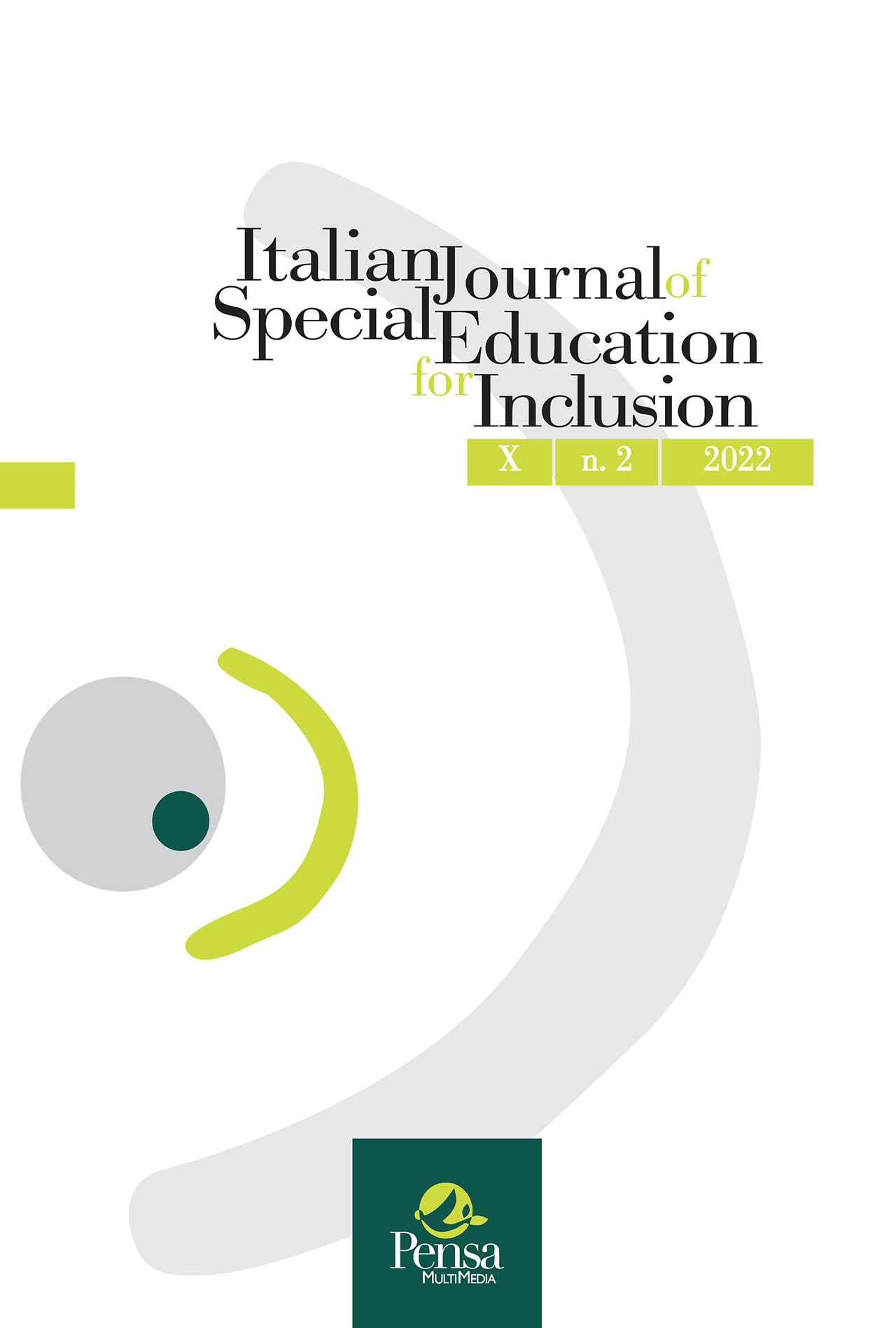The value dimension as a foundation in the teaching practice of the specialized teacher
DOI:
https://doi.org/10.7346/sipes-02-2022-12Abstract
The teacher's self-perception regarding his role and his professional training can act positively or negatively on his ability to design school and extracurricular educational contexts based on an inclusive perspective. While waiting for this ability to be the prerogative of all teachers capable of pursuing the educational success of all students in the near future, inclusion is something that still and primarily concerns teachers specialized in support activities. Retracing the various phases that characterized the definition of this professional figure, it will be shown how the initial imprinting provided to it by the historical-social contingencies has generated an ideal plan, outlined by the legislation and addressed to a "specialized" teacher with his / her skills of novelty, competence and systemic importance, and a plan, so to speak, real, materialized in daily educational practice, aimed at a "support" teacher as a figure delegated to tackle the "problem" of disability in a personal, improvised and free of pedagogical perspective.
Through a brief examination of international documents or more recent supranational agencies, the contribution will illustrate how the value dimension, if placed at the center of initial training, can act in terms of identity on the self-perception of the specialized teacher, ensuring that a renewed knowing how to be, cut out on the aforementioned ideal level, it becomes the foundation of every practice, of every declination of know-how. A teacher of this type will be able more easily to manage the multidimensional processes generated by the rapid socio-cultural and regulatory changes that have affected the school in recent times, such as those of accessibility and sustainability, becoming a system figure with a profound specialization and an enlarged vision from an ecosystem perspective in space and time.


